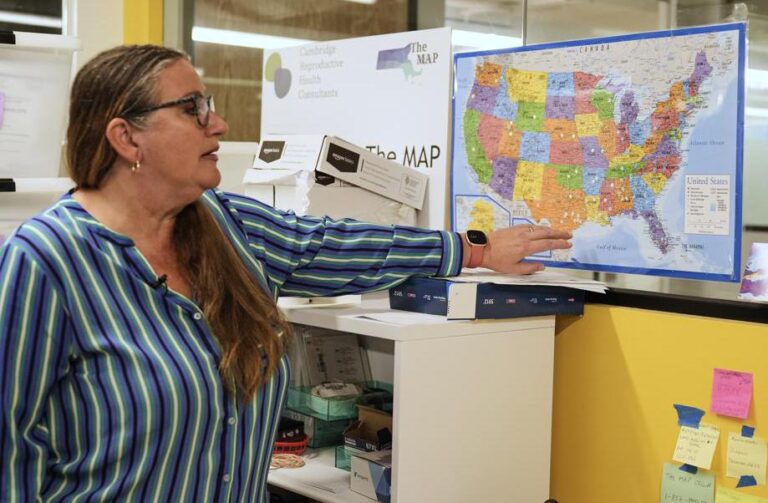Every month, thousands of women thwart abortion bans in their home states by turning to telehealth clinics willing to prescribe pregnancy-ending drugs online and ship them anywhere in the country.
Whether this is legal, though, is a matter of debate. Two legal cases involving a New York doctor could wind up testing the shield laws some states have passed to protect telehealth providers who ship abortion pills nationwide.
Dr. Margaret Carpenter faces a felony charge in Louisiana for supplying abortion medication through the mail to a pregnant teen in that state. The patient’s mother also faces criminal charges. A Texas judge fined the same physician $100,000 after the state accused her of prescribing abortion medication for a woman near Dallas.
So far, the prosecution hasn’t progressed thanks to New York’s shield law, which has protected Carpenter from extradition to Louisiana. But other telehealth centers operating in states with similar legal protections for abortion providers are watching closely.
“We have great legal counsel who have advised us that what we are doing is legal,’’ said Dr. Angel Foster, cofounder of The Massachusetts Medication Abortion Access Project, which is among a handful of telehealth providers that facilitate abortions from afar in states with bans.
As more states consider enacting shield laws or expanding existing ones, whether one state can shield providers from liability for breaking another state’s laws around abortion is still an unsettled area of law.
Erik Baptist, senior counsel for the Alliance Defending Freedom, which opposes abortion, said shield laws violate a constitutional requirement that states respect the laws and legal judgments of other states.
“What these shield law states are doing are undermining the prerogative of these pro-life states to implement and enforce pro-life laws,’’ said Baptist, director of the group’s Center for Life. ’’And so I think the Supreme Court ultimately will want to take this.’’
“That is inherently a challenge with shield laws and telehealth,’’ said Carmel Shachar, faculty director of the Health Law and Policy Clinic at Harvard Law School. “At a certain point, for the purposes of abortion bans, the courts will need to decide: Do we treat a telehealth abortion as happening within the state of the provider or within the state of the patient?’’
Decades ago, the FDA approved the use of two prescription medicines — mifepristone and misoprostol — to terminate pregnancies.
But it wasn’t until 2023 that telehealth abortions across states became more popular, after the US Supreme Court overturned Roe v. Wade in 2022.
The Society of Family Planning, which supports abortion rights, said that between April and June 2024 there were an average of 7,700 telehealth abortions performed each month in states that either ban abortion totally or after six weeks of pregnancy.
The prescribing process at telehealth clinics varies by provider, but usually takes place entirely online, with the patient answering a series of health-related questions and consent forms.
At some telehealth clinics, medical providers don’t come face-to-face with patients, even via videoconferencing, and patients don’t necessarily know the prescriber’s name unless requested.
For instance, when Foster’s clinic, also known as The MAP, puts pills in the mail, only the name of the practice appears on the label, as allowed under the Massachusetts shield law. If patients have follow-up questions, they can talk or text the doctor working that day, but may not know that doctor’s name either.
Pills can arrive in a less than a week.
“This has been the safety net, post-Dobbs, of allowing people who don’t have the ability to travel out of state to get abortion care,’’ said Greer Donley, a University of Pittsburgh law professor and abortion law expert.
Twenty three states and Washington, D.C., currently have shield laws protecting abortion providers.
Of those, eight have specific provisions protecting them from criminal prosecution or civil lawsuits even if the patient is in another state, according to the nonprofit research organization KFF. They include California, Colorado, Maine, Massachusetts, New York, Rhode Island, Vermont, and Washington.
Louisiana’s request to extradite Carpenter hit a roadblock when New York Governor Kathy Hochul rejected it, citing the state’s shield law. (A county clerk also cited the shield law as he refused to file the civil judgment from Texas.)
